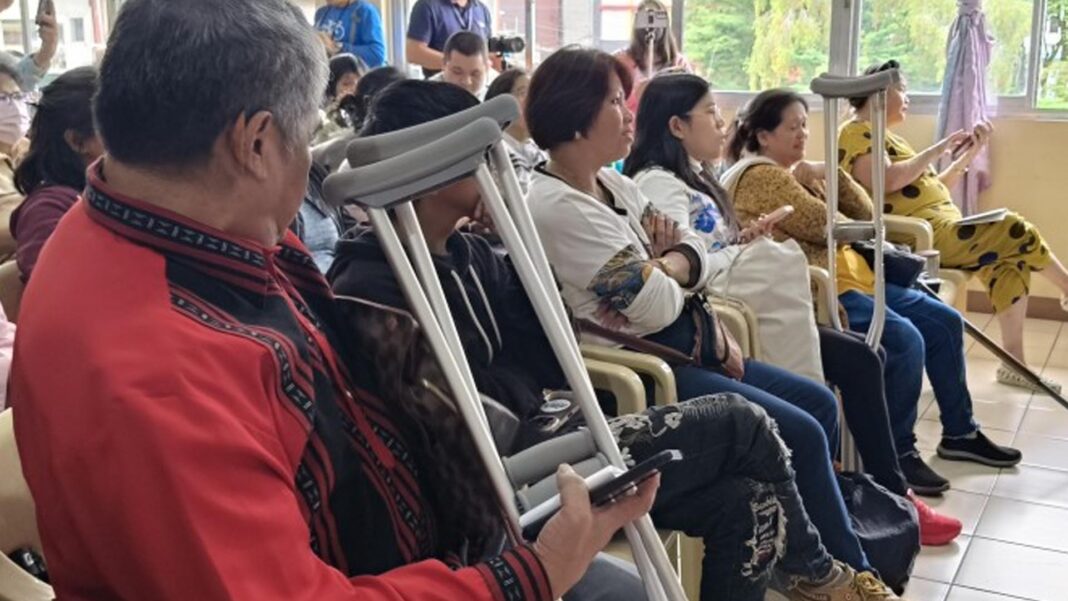Officials of Clark International Airport Authority (CIAC) and the Department of Transportation (DOTr) on Monday said they continue to pursue programs and projects ensuring persons with disabilities (PWDs) are provided with dignified mobility.
“This is an important symposium to ensure that public transport systems are inclusive and accessible to persons with disabilities. It is not only a matter of compliance but a matter of dignity and equity and just like what President Ferdinand Marcos Jr. said, it is equal opportunity for all, same services provided by the government to all people,” Joseph Alcazar, CIAC president and chief executive officer, said during a convention at the Baguio Health Services Office conference hall.
The event centered on “Making public transport more safe and accessible to persons with disabilities (PWDs)” is part of the corporate social responsibility (CSR) of CIAC, a subsidiary of the Bases Conversion Development Authority (BCDA) and attached agency of the DOTr.
Alcazar said CIAC conducted the symposium in support of the DOTr’s efforts for an inclusive transportation service for the PWDs.
He noted they have integrated universal designs and principles into the infrastructure projects and transit-oriented development at the CIAC-managed facilities such as the Clark Airport.
“We believe that creating a PWD-friendly environment is not only the concern of one sector but the entire community. Let this gathering be a strong reminder that safety, accessibility, and inclusivity must be settled in every policy and project that we undertake,” he said.
Jenny Bugarin-Tan, investment promotions officer of CIAC, shared the efforts being made at the Clark airport to ensure that PWD clients will not have difficulty navigating.
She also talked about efforts to include other PWD-friendly amenities with the help of some private corporations, including food service providers.
Meanwhile, Alexis Gabriel Doroteo, road transport and infrastructure office head of the DOTr central office, showed in a briefing about their different projects to meet the needs of PWDs.
“Our projects for the continuation of efforts on inclusivity, we are not just talking of the vehicles, the policies, but also the roads to ensure the safety of the PWDs,” he said.
Doroteo added that the DOTr is the primary agency that makes plans and policies with regard to transportation, and the plight of the PWDs is being looked into, the reason they make sure that facilities and infrastructure projects are inclusive and accessible.
“Inclusion is a collaboration with all sectors and we call on LGUs(local government units) to enforce and invest in inclusive design. We call on the transport operators to follow the standards out of respect and responsibility to PWDs and the private sector planner to design with empathy for PWD,” Doroteo said.
“Anna” (not her real name), mother of a PWD with mental disability, relayed the special needs of her child when riding a public utility vehicle.
“Charisse” (not her real name), a senior citizen and PWD, who also has a child diagnosed with autism, asked that the DOTr stop public utility vehicles from playing loud music, which is not appreciated by all passengers.
Baguio City Councilor Arthur Allad-iw, a PWD himself who represented Mayor Benjamin Magalong, said, “Here in Baguio, we always believe in inclusive development that is why we fully support efforts to make public transport safer and more accessible to PWD from clear signage, steep-free landing, trained personnel and responsive feedback mechanisms.”
He urged fellow PWDs and the public to “not see accessibility as a privilege but as a standard.”
The event was attended by people with various disabilities, who voiced their concerns when riding public transport, such as loud music in passenger jeepneys. (PNA)



